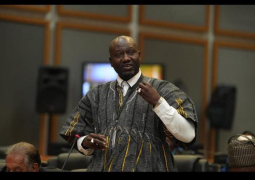
Samira Daoud, made the statement yesterday at a virtual press conference from Dakar, Senegal, following the release of a research report on the impact of fishmeal factories and the unregulated fishing activities on the lives and livelihoods of locals along the coastal settlements of The Gambia.
“The malpractice by certain actors in the fishing industry is harming the environment and undermining people’s livelihoods. The Gambian authorities must urgently take all measures to end all forms of illegal fishing and protect the human and economic rights of the affected communities,” she warned.
She disclosed that the presence of fishmeal factories along the coastal villages of the country has negatively impacted the livelihoods of the people, citing the community of Sanyang which she said, has experienced a severe social and economic setback following the establishment of the fishmeal industry.
“Local communities are being deprived of their basic rights to a decent standard of living as well as their rights to health and food. I am urging the government of The Gambia to urgently protect the socio-economic rights of the locals, especially those living in Sanyang and her neighbouring villages,” she advised.
“If the coronavirus has bankrupted business, the fishmeal factory is doing worse than that.”
"We know the coronavirus pandemic would last a particular moment in time but about the fishmeal factories, we do not know how long this will affect the economic gains of the coastal settlements,’’ she said.
Over the years, communities along the coastlines of The Gambia such as Sanyang, Gunjur, Kartong and Tanjai had staged a series of protests against the government for allowing the establishment of fishmeal industries including its alleged illegal juvenile fishing activities.
Read Other Articles In Headlines





